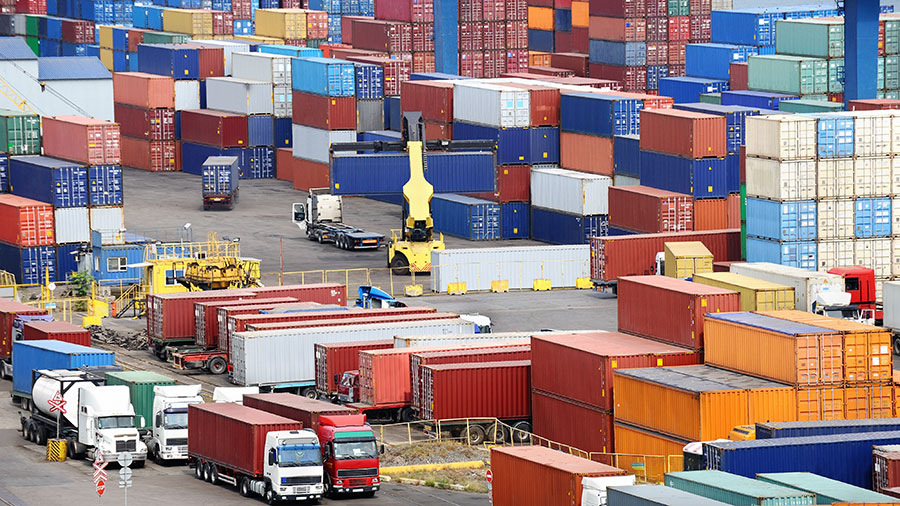Estimated reading time: 3 minutes
Nigeria’s ongoing foreign exchange crisis appears to be taking a toll on its import sector, with a significant drop in container volumes handled by ports in the first quarter of 2024. Licensed customs agents have attributed the decline to difficulties in accessing foreign currency, raising concerns about the wider impact on the country’s economy.

According to documents from the Nigerian Ports Authority (NPA), container throughput fell by 2.39% compared to the same period in 2023. This translates to a decrease of over 9,700 twenty-foot equivalent units (TEUs) – a key metric in containerized cargo shipping.
According to the NPA, the total container throughput for Q1 2024 was 396,083, down from 405,811 in the same period last year.
The NPA also noted that export containers for Q1 2023 totalled 150,926, while 254,884 laden containers were received in the country during the same period.
In Q1 2024, there were 112,801 empty containers recorded, and 283,281 loaded containers were processed.
The National Coordinator of the Importers Association of Nigeria, Dr. Basil Nwaolisa, expressed his deep concern. He linked the decline directly to the forex crisis, highlighting a troubling 300% increase in shipment clearance costs at ports within the past year. Nwaolisa further emphasized the potential for significant financial losses, estimating that Nigeria could be hemorrhaging over $500 million annually due to these issues.
“The country is losing more than $500m annually. A year ago, clearing a cargo might cost N5m, but now the same consignment costs N20m or more. This is a big problem. If an importer’s worth is about N15m, can they import a container now? Demurrage is a significant issue at N60,000 per container per month,” Nwaolisa said.
He emphasized that the forex issues were a major burden on importers, with 60 per cent of their members ceasing importation.
The ramifications of this import slump extend beyond immediate financial constraints. A reduced flow of goods could lead to shortages of essential products and hinder domestic manufacturing that relies on imported components. This, in turn, could fuel inflation and dampen consumer spending.
The Nigerian government must prioritize addressing the forex crisis to mitigate these negative consequences. Measures to stabilize the exchange rate and improve access to foreign currency for legitimate business purposes are crucial. Additionally, streamlining import clearance procedures could help reduce costs and expedite the movement of goods through ports.
Nigeria’s import sector plays a vital role in its economy. Addressing the challenges posed by the forex crisis is essential to ensure the continued flow of goods, protect consumers, and foster business growth.
Tags: Import, Nigeria, National Coordinator of the Importers Association of Nigeria, Importers Association of Nigeria, Dr. Basil Nwaolisa, Forex, CBN, Nigerian Ports Authority, NPA






